- Home
- Margaret Pemberton
Party in Peking
Party in Peking Read online
Bello:
hidden talent rediscovered
Bello is a digital only imprint of Pan Macmillan, established to breathe life into previously published classic books.
At Bello we believe in the timeless power of the imagination, of good story, narrative and entertainment and we want to use digital technology to ensure that many more readers can enjoy these books into the future.
We publish in ebook and Print on Demand formats to bring these wonderful books to new audiences.
www.bellobooks.co.uk
Contents
Margaret Pemberton
Dedication
Chapter One
Chapter Two
Chapter Three
Chapter Four
Chapter Five
Chapter Six
Chapter Seven
Chapter Eight
Chapter Nine
Chapter Ten
Chapter Eleven
Epilogue
Margaret Pemberton
Party in Peking
Margaret Pemberton is the bestselling author of over thirty novels in many different genres, some of which are contemporary in setting and some historical.
She has served as Chairman of the Romantic Novelists’ Association and has three times served as a committee member of the Crime Writers’ Association. Born in Bradford, she is married to a Londoner, has five children and two dogs and lives in Whitstable, Kent. Apart from writing, her passions are tango, travel, English history and the English countryside.
Dedication
For Edgar Ramsden
in loving memory
Chapter One
Olivia Harland leaned back against the soft leather upholstery of the open carriage as it swayed ponderously up the dusty track. The dry, oppressive heat of Peking was behind them now. They would soon be high in the Western Hills and would remain there, at the exquisite villa that her uncle had converted from an ancient temple, until the cool season returned and Peking became once more habitable.
‘I wonder if our dear Queen enjoyed her eighty-first birthday celebrations?’ her aunt, Letitia Harland, asked musingly as the great North China Plain receded behind them and they entered the welcoming shade of a belt of trees.
William Harland assured his wife that Queen Victoria would have indeed enjoyed her birthday celebrations and Lady Glencarty, who was seated beside Olivia, replied vehemently that she only wished that she had been able to enjoy the revelry in the blessed beauty of her native Scotland and had not had to endure them in the stifling heat of Sir Claude MacDonald’s salon. Sir Claude was Her Majesty’s Minister at the Manchu Court and the previous evening, 24 May 1900, had hosted a party in order that the British community in Peking could suitably toast their sovereign.
The guests had numbered over sixty. Dinner had been served in a small theatre at the British Legation and afterwards there had been dancing on the tennis courts beneath the soft glow of paper lanterns hanging in the trees.
Olivia’s aunt and Lady Glencarty continued to discuss the soirée, but Olivia remained silent, her thoughts full of Phillipe. How handsome he had looked as he sat across from her at Sir Claude’s dining table, the light from the chandeliers gleaming on his sun-gold hair. Involuntarily she touched the square cut emerald that sparkled on the third finger of her left hand. Their engagement had pleased her aunt and uncle. Phillippe Casanaeve was one of the most eligible bachelors in the diplomatic corps. His arrival six months ago as a junior diplomat at the French Legation had caused many a female heart to flutter.
Tall, slim, sleekly moustached and elegantly dressed, he had attracted all eyes at the parties and picnics that were the backbone of diplomatic social life. He had singled her out almost from the very first, and her aunt and uncle had encouraged his attentions. Childless themselves, they had gallantly assumed responsibility for her when her parents had died, but it was a responsibility that had been unsought and Olivia knew that her marriage would come as a relief to them.
‘Sir Claude seemed most perturbed yesterday evening when mention was made of the mountebanks in the northern provinces,’ Lady Glencarty said as a vermilion and gold-plumaged bird darted from the trees, startling Olivia from her thoughts.
‘Not mountebanks, Clarissa. Rebels,’ William Harland corrected, his gloved hand resting lightly on the silver top of his malacca cane. ‘The French Minister, Monsieur Pichon, is so alarmed by them that he has suggested the foreign powers in Peking send for a naval attachment from Tientsin to serve as protection, should it be needed.’
Lady Glencarty’s heavy eyebrows shot upwards. ‘I hope this suggestion was vetoed!’ she said with asperity. ‘To go to such lengths because of bands of superstitious peasants would be intolerable! We should become a laughing stock!’
‘His suggestion was vetoed, but I am not too sure the decision was a wise one,’ William Harland said gravely. ‘The rebels are no longer confining their burning and looting of missions to the northern provinces of Chihli and Shansi. There have been reports of missionaries murdered a mere forty miles from Peking.’
His wife laid a hand restrainingly on his arm, her face pale. ‘Please do not speak of it, my dear. It makes me feel quite ill.’
William Harland smiled reassuringly. ‘Do not worry, Letitia. The danger does not extend to ourselves. No Chinese, Boxer or otherwise would dare to lay violent hands on a member of one of the foreign legations.’
‘Why are the rebels referred to as Boxers?’ Olivia asked curiously, grateful for the light breeze which stirred the leaves on the trees and blew a tendril of soft dark hair against her cheek.
William Harland’s obscure features softened. He was extremely fond of his intelligent and pretty niece. ‘The sobriquet was given to them by missionaries. The rebels refer to themselves by a much more splendid name: The Fists of Righteous Harmony.’
Lady Glencarty snorted in derision.
‘They object strongly to the western practice of building churches with spires,’ William Harland continued, undeterred. ‘Their own architecture refrains from anything they think will interfere with the feng-shui, the spirits of wind and water.’
‘Poppycock!’ Lady Glencarty said vigorously, ‘And against such native superstition the French minister was prepared to make fools of us all by sending to Tientsin for a naval detachment!’
‘It is, unfortunately, dangerous superstition,’ William Harland said, a faint frown furrowing his brow. ‘The Boxers and their followers believe that it is the presence of Europeans in China that is the cause of the present drought. They say that our presence has offended the spirits of wind and water and until they are appeased, that no rain will fall.’
Lady Glencarty’s thin lips tightened disdainfully. ‘ Is it true that they believe they are invincible?’ Letitia Harland asked nervously, adjusting her veil with a net-gloved hand. ‘Lady MacDonald says that the spirits of heroes render them immune to death and that they cannot be killed.’
A slight smile tugged at the corners of her husband’s mouth. ‘ I am not sure if even the Boxers are so credulous, my dear. It would make them a formidable fighting force if they were.’
‘Nothing can turn ill-trained, illiterate peasants into a formidable fighting force,’ Lady Glencarty said tartly.
William Harland politely refrained from replying and thereby antagonizing his guest further. But Olivia could tell that he was not convinced.
‘We really must talk of them no longer,’ Letitia Harland said with a shudder. ‘When I think of the poor missionaries in Chihli and Shansi and what they have suffered, I feel quite faint. I cannot understand why the Empress does not intervene. She has power of life and death over her subjects, does she not?’
‘She does indeed, Letitia,’ said Lady
Glencarty, carefully removing a speck of dust from the sweeping folds of her skirt. ‘Though I refuse to believe that she exercises it in a manner that rumour would have us believe.’
A chill ran down Olivia’s spine. Gossip said that there were days when the Inner Courtyard of the Imperial City ran red with blood. That not only did Empress Dowager Tzu-hsi command the execution of those who displeased her, but that she actually witnessed the executions in person. Olivia could well believe it. She had met the Empress Dowager only once, but it was an occasion that she would not soon forget.
In an unprecedented gesture, Empress Dowager Tzu-hsi had invited the diplomatic ladies to tea at the Winter Palace, and had presented each and every one of them with a generous gift of a ring. Olivia had accepted her present reluctantly. There was something unpleasant in the Empress’s hooded eyes. An expression which did not accord with her overtures of friendship.
She sat on a divan, flanked by eunuchs, her short, stout figure robed in stiff, yellow silk. Her hair was dark and sleek, parted down the centre and pulled tightly back over her ears, secured on the top of her head with a long, jade pin. Lady Glencarty had gushingly whispered to Olivia that she reminded her of their own, dear Queen, but Olivia had been unable to find any resemblance. There was something evil about the doll-like figure, her grotesquely long fingernails protected by jewelled nail shields. However much her actions might seem to belie it, Olivia was sure that the Empress despised the gaily chattering European women thronging her court. She had been relieved when the audience was over and they had been carried by sedan chair out of the Forbidden City and through the straight, dust-blown streets that led to the Legation district.
In Peking, as in other oriental cities, custom had always decreed that various trades were located separately and in their own areas. Silversmiths were to be found in one street, jewellers in another, and saddlers in a third. When diplomats arrived in Peking they, too, had been concentrated into their own area. Their legations were large houses set in vast, high-walled grounds. There were eleven of them together with an hotel, the Russo-Chinese Bank, the offices of Jardine Matheson, the inevitable club and a handful of European residences, occupying an area nearly three quarters of a mile square.
When Olivia had first arrived in Peking, she had been fascinated by how one part of the city had been walled inside another. In Peking’s heart was the Winter Palace. The walls of the Forbidden City surrounded it and in turn was surrounded by the pink walls of the Imperial City. Beyond the gates of the Imperial City lay the Tartar City, the legations and cathedral, and the various missions. The walls of the Tartar City were massive and crenellated, more than forty feet high and forty feet thick. Beyond their gates lay the Chinese City, colourful and crowded and noisy.
Small shops huddled three-deep, gay flags announcing their wares. Craftsmen followed their professions in streets, mending delicate porcelain with nimble dexterity. Rope-dancers twirled and spun. Fortunetellers vied with beggars for attention of the crowd. Pedlars whistled, carrying heavy paniers of sweets and cakes and household necessities. There were acrobats, jugglers, storytellers. Mule-drawn carts, and donkeys and camels. It was a teeming, raucous circus, and alongside it was the other China. The China of fluttering doves and almond blossom; of tinkling bells and the clear notes of trumpets as they blew in fanfare to welcome important personages at the Tien An Men Gate. All of it held Olivia in thrall. The gentle, passive faces of the Chinese charmed her, and she hated to think of the violence which flared in the North.
Despite the stories she had heard, she had scarcely been able to believe in the existence of the Boxers until the day that she met the Empress Dowager. The veiled hostility had been palpable, and looking into the raisin-black slits of her eyes, Olivia had been seized with a sudden sense of foreboding. With such a woman as Empress, any barbarity would be credible. Phillippe had teased her, and told her that her fears were groundless, but the uneasiness had persisted and even now, high amidst the peace and tranquillity of the Western Hills, it reached out and touched her, spoiling the beauty of the day.
‘Lewis Sinclair is back in Peking,’ William Harland said as the trees thinned, and they neared the marble lion-dogs flanking the gateway of the villa. ‘He will have first-hand news of the situation in Shansi and no doubt Sir Claude will be grateful for it.’
‘Is Mr Sinclair the reckless young man who married a Chinese girl?’ his wife asked enquiringly.
William Harland nodded.
‘I shall be most surprised if Sir Claude pays any attention to information coming from that source,’ Lady Glencarty said. ‘Do you know that he had the effrontery to assume that social invitations would be extended to his wife, and was unspeakably insolent when none were forthcoming?’
‘It was a regrettable marriage,’ William Harland agreed as the coach shuddered to a halt. ‘It resulted in his leaving Peking, and that was a great loss. Despite his unfortunate go-to-the-devil manner, I am told he is a remarkably fine doctor, and speaks Chinese like a native.’
‘He probably lives like a native now,’ Lady Glencarty said with a shiver of distaste.
As Olivia stepped from the carriage, she glanced down at her engagement ring, glad that her marriage to Phillippe would not be discussed in such a way. She felt a surge of compassion for the unknown Chinese girl not welcome at social functions with her husband.
‘Tea, Lin Pei,’ Letitia said in relief as a pig-tailed Chinese hurried forward to greet them. ‘Oh dear, my poor head. I shall never accustom myself to the summer heat.’
Parasols were closed, net gloves discarded. Olivia had no desire to sit sipping tea with Lady Glencarty. Her limbs were stiff from sitting for so long in the cramped confines of the carriage, and she yearned for exercise.
‘Would you excuse me, Aunt Letitia? I would like to take a walk before dinner.’
‘Yes, of course, my dear. But don’t overtire yourself,’ Letitia Harland added, wanting to do nothing more than rest and free herself from her too-tight Parisian corseting.
Olivia retired to her room to freshen her face with eau de Cologne. The afternoon sunlight filtered through lattice screens. Behind the delicately carved K’ang bed were embroidered hangings of full-blown peonies, crested pheasants, pomegranates and peaches. The former temple never failed to exercise its magic on her. She gazed around her with pleasure, then hurried downstairs, past the marble lion-dogs guarding the doorway, and out into the garden where ornamental ponds were crammed with lilies.
The scent of flowering trees filled the air. Exotic shrubs bordered the gravel pathways. In the clear light the villa glowed like a jewel. Its roofs were rose-red, the ornate eaves upturned as if defying gravity. Scarlet and emerald and azure enamelling decorated the walls and balconies in an explosion of colour, perfectly offset by the stark purity of the groves of white pines rising behind it. She looked up into their cool depths longingly. Tomorrow she would ride high amongst them. It was too late in the day to ask that a horse be made ready for her now. She suppressed a sigh of regret. Riding was her greatest pleasure, and one she could not indulge in as often as she would have liked. A smile curved her lips. She would be able to ride and walk to her heart’s content when she was married to Phillippe.
She was beyond the large garden now, walking through a fragrant wilderness of knee high grass. A little used track led up into the groves of pines, beckoning her temptingly. Her aunt and Lady Glencarty would be resting. Her absence would not be noticed if she indulged herself.
She walked at a swift pace, enjoying her freedom and the pine-scented air. Not until she was well out of sight of the villa did she rest, leaning breathlessly against the silver bark of a tree. A hoopoe swooped low into the valley, the sun flashing on its gaudily coloured wings. She sighed contentedly, hoping that Phillippe’s government would not transfer him too soon from Peking. She did not want to leave China. She wanted to discover more about it. She smiled to herself, wondering if she was succumbing to what Lady Glencarty referred derisiv
ely as ‘ the strange fascination which a Chinese environment so often exercises over a European mind’. If she was, she was uncaring. She was nineteen, engaged to an incredibly handsome man, and living in one of the least visited and most exotic countries in the world.
There was no sound; no movement; even the clouds seemed motionless in the high blue bowl of the sky. She closed her eyes, enjoying the warmth of the sun on her face, and her daydream of what life would be like when she was Mrs Phillippe Casanaeve. Then came the scream. Her eyes flew open. For a second she thought she had been dreaming, and then it came again, terrified and high-pitched, followed immediately by shouts and cries and the distant whinnying of horses.
With a gasp of dismay she ran from the shelter of the trees, desperately seeking a vantage point that would enable her to see down into the valley.
The track had curved round and away from the villa, and all that she could see were the ranks of pines and a wisp of cloud. Fear made her cry out loud. It wasn’t a trail of cirrus trapped in the fold of the hills: it was smoke.
‘Oh no!’ she whispered, her hand clutching her throat as the shouts and cries intensified. ‘The villa! The villa is on fire!’
She began to run downhill, her momentum hurtling her into the trunks of the trees, her palms becoming scratched and bloodied as she clutched at the rough bark. The shouts grew louder, more demented, and the smell of burning wood hung heavy in the air. The way seemed endless. It was impossible to imagine that it was the same track she had climbed so enjoyably only a short time before. Beneath the hem of her gown, her small booted feet gouged out clouds of dust as she slipped and slid heedlessly over the dry, parched earth. With a sob of relief, she saw that the track veered round the shoulder of the hill. Another twenty yards and she would have a clear view of the cause of smoke now billowing upwards in acrid density.

 The Summer Queen
The Summer Queen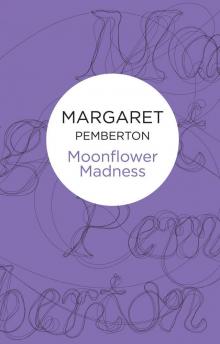 Moonflower Madness
Moonflower Madness The Londoners
The Londoners The Flower Garden
The Flower Garden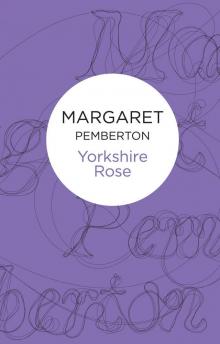 Yorkshire Rose
Yorkshire Rose Vengeance in the Sun
Vengeance in the Sun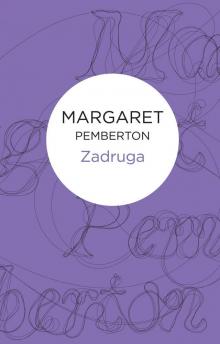 Zadruga
Zadruga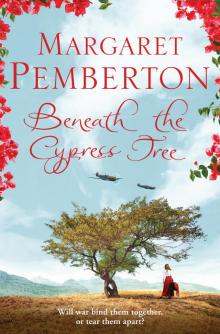 Beneath the Cypress Tree
Beneath the Cypress Tree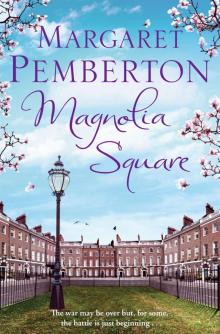 Magnolia Square
Magnolia Square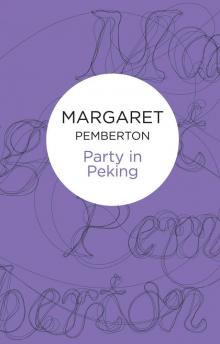 Party in Peking
Party in Peking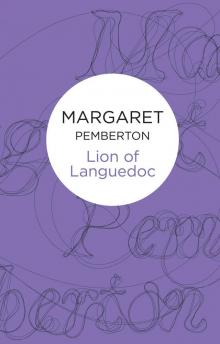 Lion of Languedoc
Lion of Languedoc Forget-Me-Not Bride
Forget-Me-Not Bride The Guilty Secret
The Guilty Secret Rendezvous With Danger
Rendezvous With Danger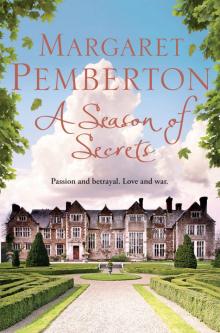 A Season of Secrets
A Season of Secrets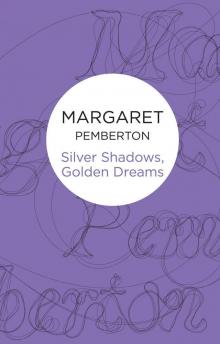 Silver Shadows, Golden Dreams
Silver Shadows, Golden Dreams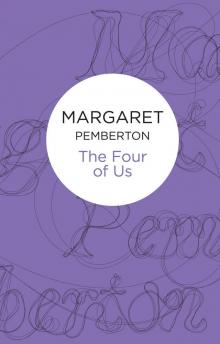 The Four of Us
The Four of Us Devil's Palace
Devil's Palace Never Leave Me
Never Leave Me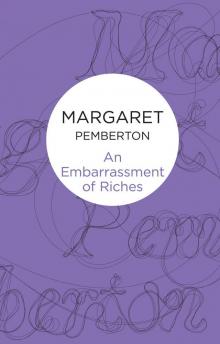 An Embarrassment of Riches
An Embarrassment of Riches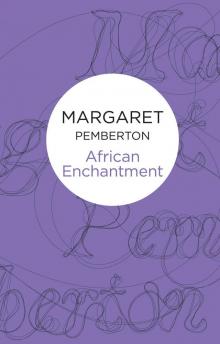 African Enchantment
African Enchantment White Christmas in Saigon
White Christmas in Saigon Coronation Summer
Coronation Summer A Multitude of Sins
A Multitude of Sins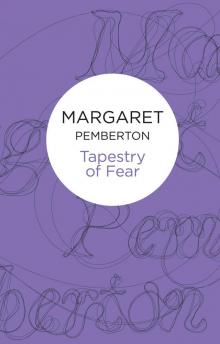 Tapestry of Fear
Tapestry of Fear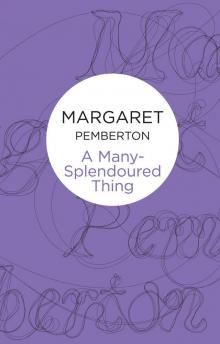 A Many-Splendoured Thing
A Many-Splendoured Thing